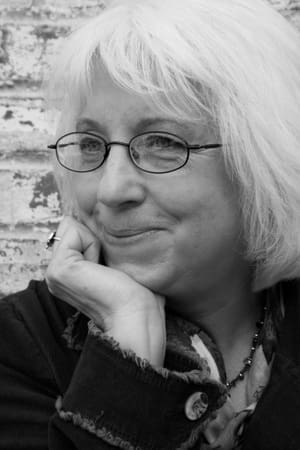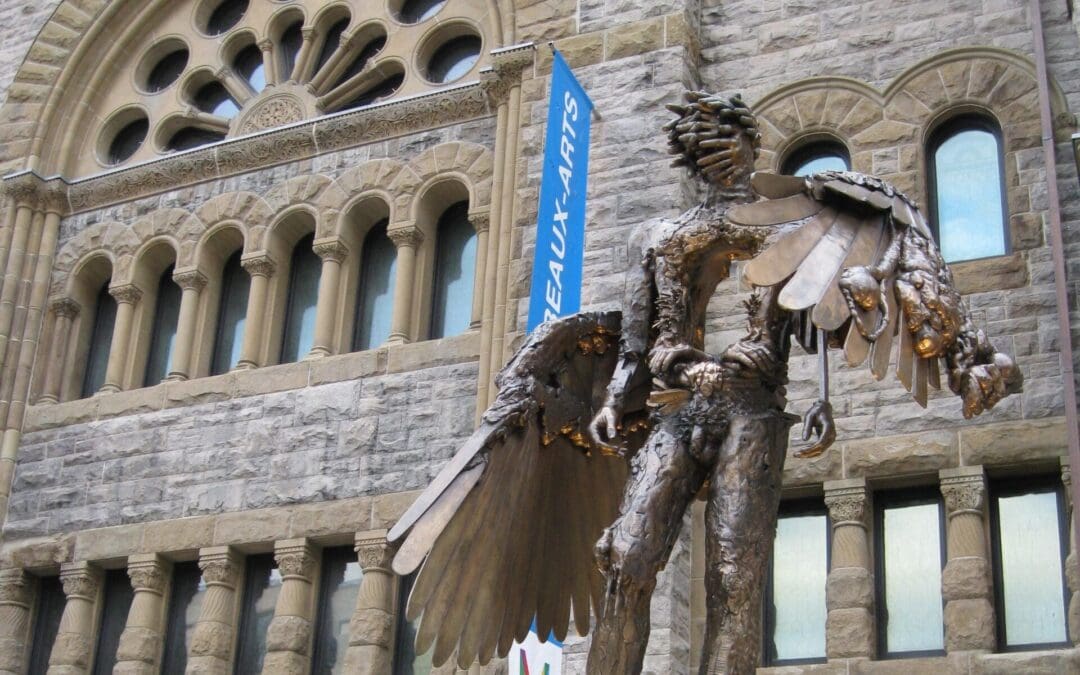Inspired by the interviews in the Paris Review and Bomb magazine, “The Questions” in Sports Illustrated, and the regular interviews on the blogs of Tom Peters and Guy Kawasaki, Comment has asked a diverse group of mentors for their stories.
Comment: How would you explain what you do to an interested nine-year-old child?
Margie Haack: I like this question, because children often have a deeper understanding of what is important in life than we adults recognize. To a nine-year-old, I’d say we try to help people see if God is as important as adult Christians say he is, and if he is so interested in our lives, then how do we see evidence of him in all parts of life—not just the praying, reading-the-Bible, going-to-church bits of life? We are especially interested in recognizing glimpses of truth or beauty in parts of our culture where this generation’s stories emerge, as in a movie that shows a teenager trying to figure out how to live when her family is breaking up, or a song by a music group that is very sad because the songwriter has seen people living and dying without hope or love, and it is a very depressing business. We think that these parts of our culture ask very important questions about life, such as: “Will there be anyone there for me in the end?”
So for many years my husband and I have invited people into our lives for discussion through our publications (Critique and Notes From Toad Hall), our writing, our speaking.
Our home, Toad Hall, where we live and have our offices is central to all we do. We often say we want it to be the safest place in Rochester—a place where place you might sit down and have a Mountain Dew, or a cup of tea (although I’m partial to coffee), and where we could talk about anything from why your big brother has pierced his eyebrow, to if God is so good why there are Lost Boys in Africa. Although we don’t always do this perfectly we’ve wanted it to be a place of listening and giving unhurried time. We are confident in the truth and beauty of the Christian story, so that helps us to not be afraid of people or stories that don’t agree with ours.
 |
Comment: What first drew you to this work?
MH: The shaping of my life and calling has been like the title to Emmylou Harris’ 2003 album, Stumble into Grace. I didn’t set out with a plan to become co-director of a ministry or to have it evolve into writing. My journey has been one of stumbling, tottering forward with sightings of grace and hope along the way.
Comment: As a novice, what were your most valuable learning experiences?
MH: When we were a young couple, we knew we wanted our home to be a place where marginalized people felt particularly welcome—people who might make the church feel uncomfortable with their lifestyles or questions. We had artist friends who were models for us. They regularly invited us to their home for an evening of chicken gumbo soup, crusty bread, and wine. We were a motley crew sitting on the floor talking, arguing, listening to music, dancing. What immediately impressed me was how creative and inviting simplicity can be. You don’t need designer shades and Persian carpets. That demonstration of hospitality made it clear to us that our living room could be a space for addressing the most important issues in life and death. As Francis Schaeffer taught us, “There are no little people.”
Comment: What is the best advice you’ve ever been given?
MH: Years ago I received an excellent piece of advice from an older friend who said, upon observing my life, “Margie, you need permission to take care of yourself. I’m giving it. Now do it!” Regular rest doesn’t just happen. It has always needed to be structured into the fabric of my life.
Another piece of wisdom that is right at the top is from J. I. Packer. I find that because I sometimes doubt God’s love, and because failure is familiar to me, I need to hear Packer’s reflections on a favorite scripture passage: “If God is for us, who can be against us?” (Romans 8:31). In Knowing God, he writes:
The words ‘God is for us’ are also covenant language; what is being proclaimed here is God’s undertaking to uphold and protect us when men and things are threatening, to provide for us as long as our earthly pilgrimage lasts, and to lead us finally into the full enjoyment of Himself, however many obstacles may seem at present to stand in the way of our getting there. The simple statement, ‘God is for us’, is in truth one of the richest and weightiest utterances that the Bible contains.
 |
Comment: From what sources do you draw inspiration for your work?
MH: I would say many things . . .
Poetry. Denise Levertov is a favorite. When I read poetry I wonder why I would ever bother to write prose.
Novels. Lately, I’ve been very taken by Cormac McCarthy‘s work. I read some of his sentences and can barely breathe.
People. There is an elderly woman in our church who has aged beautifully, she maintains an interest in all around her and declares life is a marathon not a sprint, and the last five miles are the hardest. I want to age like her—graciously, faithfully.
Creation. All around me is evidence of God’s care. Recently I was sitting outdoors contemplating a majestic mountain peak in Colorado when I saw a quick movement. I hadn’t noticed the hole a few inches from my foot, and there was a tiny vole nervously poking her dark head out and looking around with tiny beady eyes. Now that’s inspiring: the contrast, the paradox of size and calling.
Comment: What rituals and habits structure your workday?
MH: I’ve always practiced spiritual disciplines of prayer and the reading of the Bible and the writings of others, though not legalistically. I’m prone to chaos and entropy, so I seem to need frequent reflection and refocusing to maintain mental and spiritual health. My day generally begins with prayer and meditations, and always fresh, ground coffee and cream in a mug. If I don’t get coffee, I’m a dangerous person to be around. Rotten! Mornings are spent writing. I’m very slow and sometimes adjusting a comma is a good day. Late each afternoon I break whatever I’m doing and go to the kitchen to begin dinner. Cooking is a creative outlet and since I’ve done it for so many years, it comes easily and often without recipes. I enjoy a sharp knife slicing a ripe tomato “just so,” snipping fresh chives from my little garden, the tiny thwop of the lid when opening a jar of kalamata olives.
Comment: What are your favorite tools?
MH: In the office I have a little half globe. It sort of looks like a fish surfacing on my desk—I don’t know what it’s called. It holds paper upright in its mouth so I can copy and edit from them.
In the kitchen, I love my mortar and pestle. Pounding away at garlic, cumin, and chile can relieve hostility and the results may even bless people in my orbit. Another kitchen device I think everyone should have is a metal step-can for trash. Mine is red and its lid never falls off and it always opens smoothly with a little click. Lovely! But it took me years to spend the money on it.
“Party shuffle” on iTunes pleases me. You never know what song it will surprise you with—one you’ve forgotten all about, but like so well.
 |
Comment: Tell us about a project that delighted you.
MH: Last summer (2007) I wrote a piece called “The Joy of Bees” in Notes From Toad Hall.
I began learning about Colony Collapse Disorder (CCD), a strange and disturbing phenomenon as bees all around the country began dying and disappearing by the millions. Researchers still aren’t certain of the cause. It’s as if honey bees have a kind of bee-AIDS and every system is collapsing from disease. I interviewed some local beekeepers with small aviaries who lost all their bee hives in one season. I know this sounds like tragedy, and it is, but the delight was learning more about the critical part pollinators play in the life of our planet. About 90% of our wild pollinators have disappeared, so when I see the three huge bumble bees that visit my aster blossoms in our tiny urban garden, as I have today, I feel joy. Joy in God’s good creation, and pleased that I can encourage people to be faithful in caring for the small plots of land they may own.
Comment: How do you plan your work?
MH: With difficulty. Since my husband and I work together at Ransom Fellowship, we need to plan our calendars months in advance in order to meet publishing deadlines, accept speaking dates, and mark off visits to our three children and their families. The problem is that while I enjoy being impulsive and spontaneous, Denis likes more structure and planning so life isn’t as chaotic. I’ve learned to use iCal effectively—well, sort of. And Denis has learned to allow some parts of our life to be laissez-faire, sort of.
Comment: How does your work connect to other aspects of your life?
MH: I grew up in a tradition where a certain kind of dualism about the sacred and the secular was predominant, so, for example, it was okay to tend a flower garden, but if you brought a bouquet to church on Sunday, that made the time you spent weeding and dead-heading more acceptable in God’s eyes. Time was better spent telling people about Jesus. Becoming a pastor or a missionary was best, and if not that, then a helping profession like medicine or teaching was okay. Practicing an art as a calling in life was out of the question.
I had a lot to unlearn. Now I enjoy more continuity in life, knowing that God is as pleased with me when I’m writing an essay on, say, Cranmer’s Book of Common Prayer, as when I’m sitting in the sun watching a cabbage white butterfly land on a catnip blossom.

